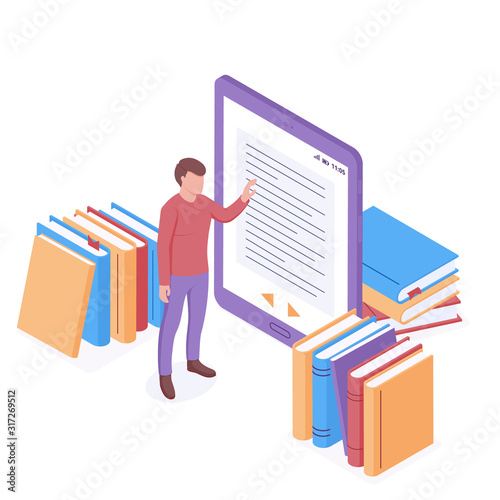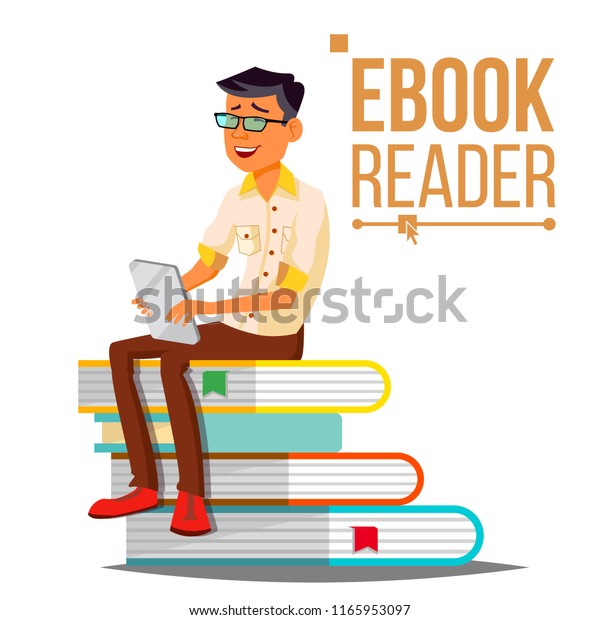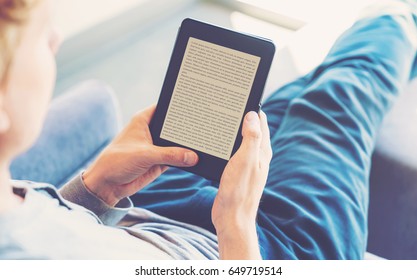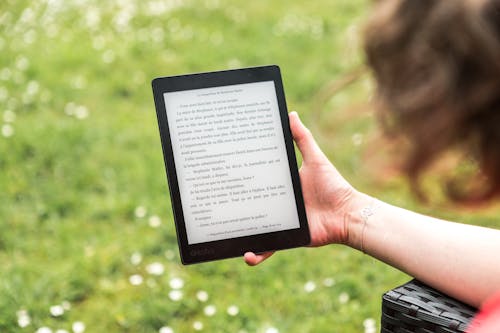The quick and easy answer is that sometimes it is and sometimes it isn't, which doesn't help much at all. In this article I'll examine in more detail when an eBook reader is a good thing to have and when it isn't.
The first thing I need to define is what is an eBook reader, because in one form or another they have been around for years, but still haven't really taken off the way that, say, the iPod did for music.
An Reader is an electronic device that takes the place of a physical book. Personal Digital Assistants, or PDAs, have had readers installed on them for years, and some people use them, myself included to read books. There are also some other dedicated readers on the market.
These devices really didn't become popular for a few reasons: the range of books available was limited, especially in new titles is limited; the screen is small and backlit, which can lead to eyestrain. And it doesn't feel like you are reading a book. For some people this is the main downside of the old batch of readers. With the new ones there have been some changes.
There are some distinct advantages to using an eBook reader rather than a traditional book. The first and foremost is for people on the move, whether it is a commute or going on vacation: they are light and easy to carry. They don't increase like a book and you don't have to lug them around.
The latest batch have also done away with the traditional backlit screen and instead have gone for a screen that's paper-like in its appearance, so you feel like you are reading a real book instead of a computer. Both Sony's and Amazon's version of the reader is the size of a trade paperback, so it mimics the feel of a book more than a PDA did in years past.
With a reader you can also have a large library without it taking up much space at all. If you are cramped for space, or have run out of room on your bookshelves, then an eBook
reader could help solve your storage problems.
Simply put, the eBook reader is not a book, with all that implies. They are an electronic device, and if you like the feel of paper in your hand as part of the experience of reading a book, then you will find one of these devices jarring to use.
You can't get out your pen and take notes, if you like to do that. The reader is not a computer, even if it has a lot of the characteristics of a computer, and for that reason it may not fill your needs.
When you are reading a book you don't have to worry about it interfering with the navigation instruments on a plane, so during take-off and landing you can continue to read. On the other hand, with an eBook reader, you have to shut it down the same as you would a cell phone or laptop computer.
Depending on how you read and why you are reading the new generation of eBook readers may be exactly what you need. If you are running out of space in your home, or if you commute and read, then one of these devices may just be very well what you need. On the other hand, they don't replace the feel of a book, even if they mimic it. If you are a traditionalist, you will most probably not like a reader. As in the case with most new technologies, it depends on what you are looking to use it for and why. So if you are considering purchasing one of these, look carefully at the pros and cons before you do, so that you don't make an expensive mistake.
I have recently written a review on Amazon's Kindle eBook reader. If you want to find out more about it then click here for more details.
Just a few short years ago, the avid reader who wanted convenience and savings would wait for desirable titles to appear in paperback. It was cheap and as easy as going to the grocery store. Now, eBooks are making paperbacks obsolete-and no trip to the grocery or bookstore is needed. With various new eReaders hitting the market, Amazon's Kindle, Barnes & Noble's Nook, Apple's iPad-simply hit download and in less than a minute you have the convenience of a new book to read while cuddling in your favorite armchair. As an added bonus, instead of books piled on your dresser or collecting dust on your shelves, you can store thousands of titles on your eReader.
Larry Leichman, owner of Arbor Books Publishing, a leading ghostwriter and designer of eBooks, believes everything will soon go digital in a matter of a few years. Just the way music downloads have become the norm with music listeners, the same trend toward electronic publishing will soon hook book lovers as well. And the statistics back this up. According to Amazon.com, eBook sales have already surpassed hardcover sales and will surpass paperback sales in 2011. Paperbacks have always sold more copies because of their lower cost, but without that advantage they are disappearing from the marketplace.
According to industry statistics, eBook sales have skyrocketed in the last ten years because of improved eBook readers and ease of downloads. The Association of American Publishers estimates that physical book sales generated $24.3 billion in 2008, down 3% from 2007. Self-published and ghostwritten books, however, are increasing in number.
* eBook sales are growing exponentially.
* eBooks offer authors a much heftier royalty, making them more attractive to independent self-publishers
* eBooks are very cheap to buy; prices start at $.99.
* With today's improved electronic readers, eBooks have the advantage of go-anywhere practicality and durability.
* Publishers are reluctantly embracing eBooks and may already be thinking about abandoning traditional paperback and hard cover divisions in favor of eBook production.
* EBooks are so cheap to mass produce-it's as simple as copying a master computer file-that the relatively huge cost of printing paperbacks and hard cover books may no longer make sense.
* Kindle and iPad sales are skyrocketing as readers discover that their high purchase prices are still lower than the total cost of the many paperback books they will read.
* A younger generation, already accustomed to downloading and a digital world, will expect content in electronic form, just as their parents saw paperbacks as the avenue to cheaper content.
So if you've been reluctant to make the switch to eBooks, now's the best time of all to give them a try and join the revolution.






Comments
Post a Comment
Please do not enter any spam link in the comment